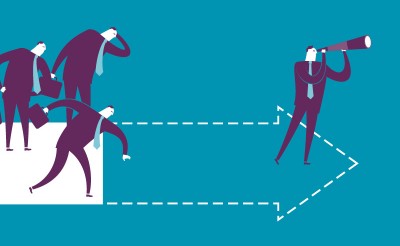Full disclosure & vulnerability is brave leadership

It was General Colin Powell that said, "There are no secrets to success. It is the result of preparation, hard work, and learning from failure".
Being brave sounds easy but we all know it can equally be a risky business. It takes 100% bravery, all day and every day. It takes a level of self-belief to challenge the traditional or the ‘it’s always been like that’. It takes an inner confidence and conviction to be a non-conformist, to have a view contradictory to the expected. It takes a willingness to fail and learn.
If you look at some of the most successful leaders in play today, at some stage in their upward momentum they have ‘failed’ and shown strength and resilience in coming back from the edge. They have displayed vulnerability.
Vulnerability can be a great strength in business, because it teaches us to engage and to listen. It encourages others to admit when they need assistance, it gives us new skills, and it also brings great collaboration on a commercial level. Richard Branson has failed and gotten up more times than many other entrepreneurs have made a decision.
Inventor Sir James Dyson, beloved designer of the vacuum cleaner, went through 5,127 prototypes and 5,126 ‘failures’ to get his phenomenally successful first model right. That’s a lot of vulnerability on show and a lot of what could be termed complete and utter failure.
In his article ‘Failure Is An Option’ Simon Sinek says, "To operate based on conviction and belief requires an acceptance that your actions could get you fired. This is different from pig-headed bravado, and it is different from putting the company at risk".
Leaders need to operate from a place of full disclosure and vulnerability and be prepared to have the courageous conversations because only in this way can we drive change, create action and generate momentum.
- We have to be willing to fail — because this is bravery
- We have to be willing to share what we know — because this is bravery
- We have to step in to the spotlight — because this is bravery
- We have to ask for help — because this is bravery
- We have to try different ways of doing and working — because this is bravery
- We have to embrace diversity and all the difference of opinion it brings — because this is bravery
When you as a leader hold back from making decisions out of a fear of failure, it engenders that same fear in your team. This creates lacklustre projects, an endemic inability to change the business status quo, and a potential lack of future management candidates. A large part of embracing vulnerability and being brave enough to risk failing is making the tough calls and showing staff and also colleagues that this is OK.
Part of being vulnerable in business is seeing how a willingness to fail is brave and sees you increase resilience as a leader. Linda Sapadin, the US based author of Master Your Fears and psychologist, uses the example of The Cowardly Lion from The Wizard of Oz, who takes action despite a lack of courage. "People think having courage means you have no fear", she says, when in fact, "…courage is taking action despite the fear". She adds: "You really need to be able to get beyond the fear to make your business happen".
In other words, fear of failure doesn’t mean full stop — it means do it anyway, be brave, and go for it.
Leadership and the ability to influence in your own world, in your backyard, are in each and every one of us.